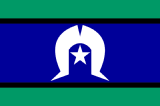We’ve answered some of the most Frequently Asked Questions as a quick reference guide to foster care support, information and resources.
Carer Allowances:
Funded for all foster care placements and initially includes a fortnightly contribution to the educational and health needs of a child or young person in home-based care. Find out more on the DFFH website.
Also check the Care Allowance Fact Sheet for Carers: This document provides additional information about client support funding and additional financial supports for carers.
Centrelink: this links you to the payment and service finder as well as the link to apply for a Health Care Card for a child in your care. The card is issued in the name of the child and only covers the child. Visit the Centrelink website.
Additional Child Care subsidy: for families that need help with the cost of childcare paid directly to childcare providers for up to 100 hours of subsidised childcare per fortnight. Find out more on the DFFH website.
Placement support funding is also available to providers of foster care (your Foster Care Agency) and may include the cost of additional equipment eg. a car seat for a toddler. The funding is managed by service providers to accommodate the needs of all children and young people in their care arrangements. Discuss with your case manager.
Client expense funding is also available for children or young people in care whose support needs exceed the day-to-day costs the care allowance contributes to, or a high-cost expense is an unreasonable financial burden. Carers should contact their agency regarding access to client support funding. This can be discussed with your case worker who will advocate on your behalf with the Child Protection Manager.
There are also a range of subsidies and concessions through the We Care, Carer Card Program.
As a carer you have the right for an incident allegation to be put in writing and section 4.3 of the CIM guide states that the investigation should abide by the standard principles of good investigations including the principles of procedural fairness. Therefore, it is reasonable that carers can request that the allegation be provided to them in writing by the organisation leading the investigation. The timing of when a carer is advised of the allegation will vary depending on the nature of the allegation (for example, if the allegation requires police involvement). In general, this will be provided just prior to the interview and although basic further details will be provided at the end of the interview.
For additional information please refer to the CIMS Guide.
Or refer to frequently asked questions.
As a carer you also have a right to have a support person with you at the time of your interview and this can be a friend (so long as there is no connection to the child or issue) or a representative from FCAV so contact our Carer Advocates on 9416 4292 as we can attend CIMS interviews as well as provide ongoing support during the process.
Initially it is advised that you have discussion your case manager but if that does not resolve the matter, you have the right to take this up line within the agency – so initially this would be the Team Leader or Manager of the program.
FCAV Carer Advocates can also provide support and advocacy in this matter by contacting our office on 9416 4292 during business hours.
Home Based Care agencies are governed by the Minimum Standards which clearly outline in Section 2.5 the need for children to meet regularly (a minimum of monthly unless otherwise agreed in a case plan) with the CSO worker or case manager in private, not in the company of the carer, to discuss their placement and any other issues that may exist. For children and young people with high needs home visits may be more often but will be discussed with you as the Carer as it will also provide additional support directly to you.
Yes, you may still be a FCAV member as an associate and continue to receive newsletters and information free with your membership.
In addition to Carer Advocacy FCAV provides:
Information, support, and advice to foster carers about Navigating the out of home care system as well as advocating with agencies and DFFH.
Carer Assistance Program (CAP) which provides therapeutic short-term intervention delivered either one-to one, as couples or in a group setting to assist with issues that arise from your caring role and could include anxiety, grief and loss, parental stress, depression, or relationship issues.
The FCAV takes the carer voice to working groups and forums such as the Commission for Children and young people, or the Victorian Council for Social Services who regularly promote the advocacy of sector services. The FCAV takes carers needs to Department, State and National level through campaigns, formal correspondence, Foster Care Week and Budget round campaigns.
Membership data and analysis of current, on hold and recently exited carers in Victoria.
Communications and peer networking for carers through forums, newsletters and social media channels.
Learning and Development Programs such as Webinars on specific topics, an Art Therapy Program, Hold My Hand program and Chat with CEO Sessions to raise practice issues and advocacy advice for carers and also agency staff as well as Wellbeing Retreats for peer support and self-care tools.
This policy applies to overnight stays of up to two consecutive nights. Longer overnight stays require the approval of the child’s case manager (DFFH or contracted CSO). The case manager will determine any additional conditions for approval of the longer stay on a case-by-case basis. In general if this is to be a regular occurrence a police check will be requested of adults living at the friends home.
Decision making about overnight stays needs to strike a balance between minimising the risk for children in care while ensuring they are not restricted from engaging in the normal everyday activities any child enjoys and needs.
In general, if there is a request for a child or young person in out-of-home care to stay overnight with a friend, the decision to allow or not allow the overnight stay may be made without the need for police checks on the adults in the household where the child or young person is to stay.
On all occasions of the first overnight stay with a particular friend, the decision is to be made by the foster carer in collaboration with the CSO case worker.
On subsequent stays with the friend, provided there were no issues with the previous stay, and with the agreement of the case manager (DFFH or contracted CSO), the carer may make the decision to allow the stay without the need to consult each time. Case planners can also authorise carers to make decisions about overnight stays after a first overnight stay under s. 175B of the CYFA.
However, carers must continue to advise the Agency or ACCO case worker, case manager (DFFH or contracted CSO) of the overnight stay before the stay occurs.
The intention of permanent care is that the placement will endure until the child reaches adulthood. The child becomes a member of the family, and permanent care parents accept parental responsibility for the child until they reach eighteen. When foster care placements convert to permanent care, the assessment must include an active exploration of these issues with foster carers, including the motivation of carers, their preparedness for integrating the child into their immediate and extended family, and an acknowledgement of the change in roles and relationships. Foster Carers will be asked to attend permanent care training but may be eligible for some exemptions particularly around Grief and Loss and Attachment sections of the training.
As part of the process for moving to Permanent Care a final Case Plan will occur and it is at this stage that approval will be granted for financial support such as a higher level of carer allowance continuing for the next 12 months or funding to continue for private therapy or to contribute to a bedroom remodel. Carers are advised to prepare for this meeting by completing the Flexible Funding application having discussed this with your case worker and having submitted paperwork to DFFH prior to the meeting.
Respite care is available via your foster care agency, so it is important to discuss the need for this to occur either directly with your case worker and at your care teams as it is important for matching to occur with a respite carer regarding the child or young person’s needs. Respite carers are also in high demand so it may take some time for this to occur. All placements are allocated up to 28 days per year for a dual payment between the full-time carer and the respite carer, which equates to two overnight stays per month.
The legislation requires the department to have procedures for the internal review of decisions made by the Secretary (including child protection practitioners or managers as delegates) as part of the decision-making process following the making of a protection order. The internal review process is available to parents and the child only. This encompasses all decisions which may be made in relation to a child, consistent with the scope of reviewable decisions by the Victorian Civil and Administrative Tribunal (VCAT). Ultimately this excludes foster carers from appealing a case plan decision.
There is a distinction between federal and state references to "carers," particularly regarding care allowances, supports, and programs. These typically apply to different types of care:
Federal Level: The term "carer" refers to individuals supporting someone with a disability, medical condition, or frailty (aged).
State Level: States manage foster, kinship, permanent, and local adoption care programs, including allowances and support for children and young people in home-based care placements.
Read on for more detail about the differences including care allowances and payments: Understanding the difference between state and federal references to 'Carers'.


